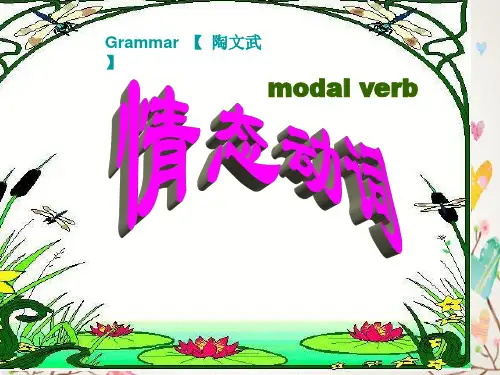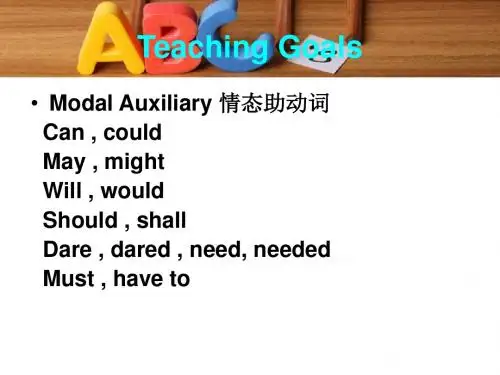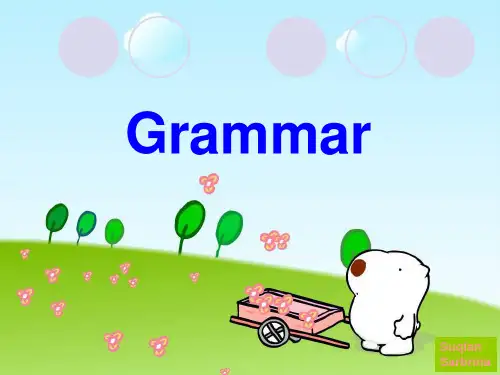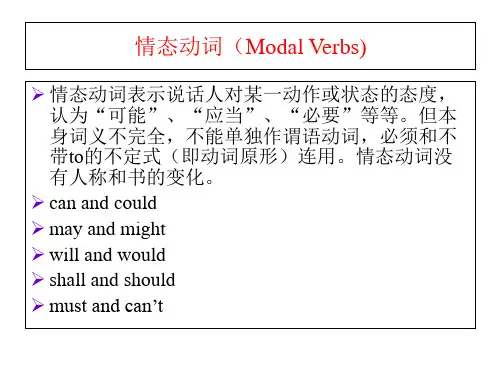1.It may rain this afternoon. 2.She might come to join us this afternoon. 3.I suppose he might have missed the train.
1.May you succeed. 2.May you live happily! 3.May she rest in peace.愿她安息。
语法 :情态动词
---Modal Verbs
情态动词 Modal Verbs
I 情态动词的定义 情态动词是一种本身有一定的词义,表 示说话人的情绪、态度或语气的动词, 但不能单独作谓语,只能和其他动词原 形构成谓语。 情态动词数量不多,但用途广泛,主要 有: can (could), may (might), must, need, ought to, dare (dared), shall (should), will (would) .
惯用句式: “may as well或might(just)as well+动词原 形”意为“最好,满可以,倒不如”,相 当于“had better.
1.There is nothing to do, so I may as well go to bed. 2.You may as well tell us now, we’ll find out sooner or later. 3.I suppose we might as well go home.
may, might, can, could
1. They (can/might) ___________be away for the might weekend but I’m not sure. 表示许可 2. You (may/might) __________leave now if you may wish. 表示请求 3. (could/may) __________you open the window a could bit, please? 表示猜测 4. He (can/could) __________be from America, could judging by his accent. 5. (may/can) ___________you swim? 表示能力 can 6. Listen, please. You (may not/might not) _________________ speak during this exam. may not










